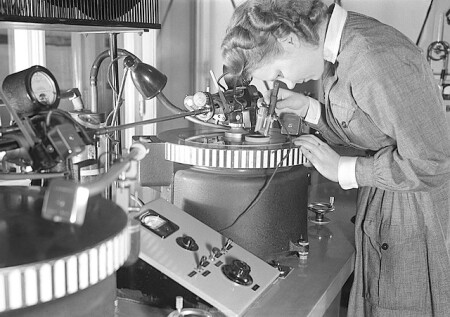Hermes project launch: boosting media reuse
8 Feb 2024Audiovisual content is more popular than ever. New TV programmes, films, vlogs, podcasts and other forms of media are being released every day. But what about content from the slightly more distant past? This treasure trove of archival material is often difficult to access because of many different obstacles. That’s why, with support from the Flemish government, we’re rolling up our sleeves to embark on the Hermes project over the next two years. Our mission: to make historical media content more widely available and reusable across three key tracks.
Accessing this archival treasure can be challenging due to issues like complex or missing rights information, a fragmented search landscape, or a lack of quality descriptions. We’re therefore joining forces with partners from the cultural, media, government and wider creative sectors to tackle these challenges head-on.
Track 1: rights
The complexity of rights statuses often keeps valuable media content locked away in archives. Our aim is to simplify this, making it easier to reuse such material in the future by developing a clear and transparent rights model.
We’re also planning to open up a wealth of audiovisual archives to the public via hetarchief.be, starting with content that’s either not subject to any rights or has a straightforward rights status.
Track 2: exchanging archival materials
There is currently no comprehensive platform where institutions can easily exchange their audiovisual archival materials with each other and the professional field, such as journalists, documentary makers or publishers. We've been exploring the feasibility of creating a platform to do just this since 2021. Now, we're launching a pilot project to turn this theory to practice – and laying the foundation for greater professional reuse.
Track 3: a framework for artificial intelligence and metadata improvement
Building on the processes and insights gained from the GIVE project and Shared AI, our third track focuses on using expanded metadata to enhance the searchability of media content. And this is where artificial intelligence comes in.
We’re tackling two main areas. First, we're enabling users to refine AI-generated metadata – because while this metadata may be good, it will never be flawless. We’re also upgrading our infrastructure to seamlessly add new AI techniques in the future, and immediately testing this brand-new technical framework with four new AI applications.

